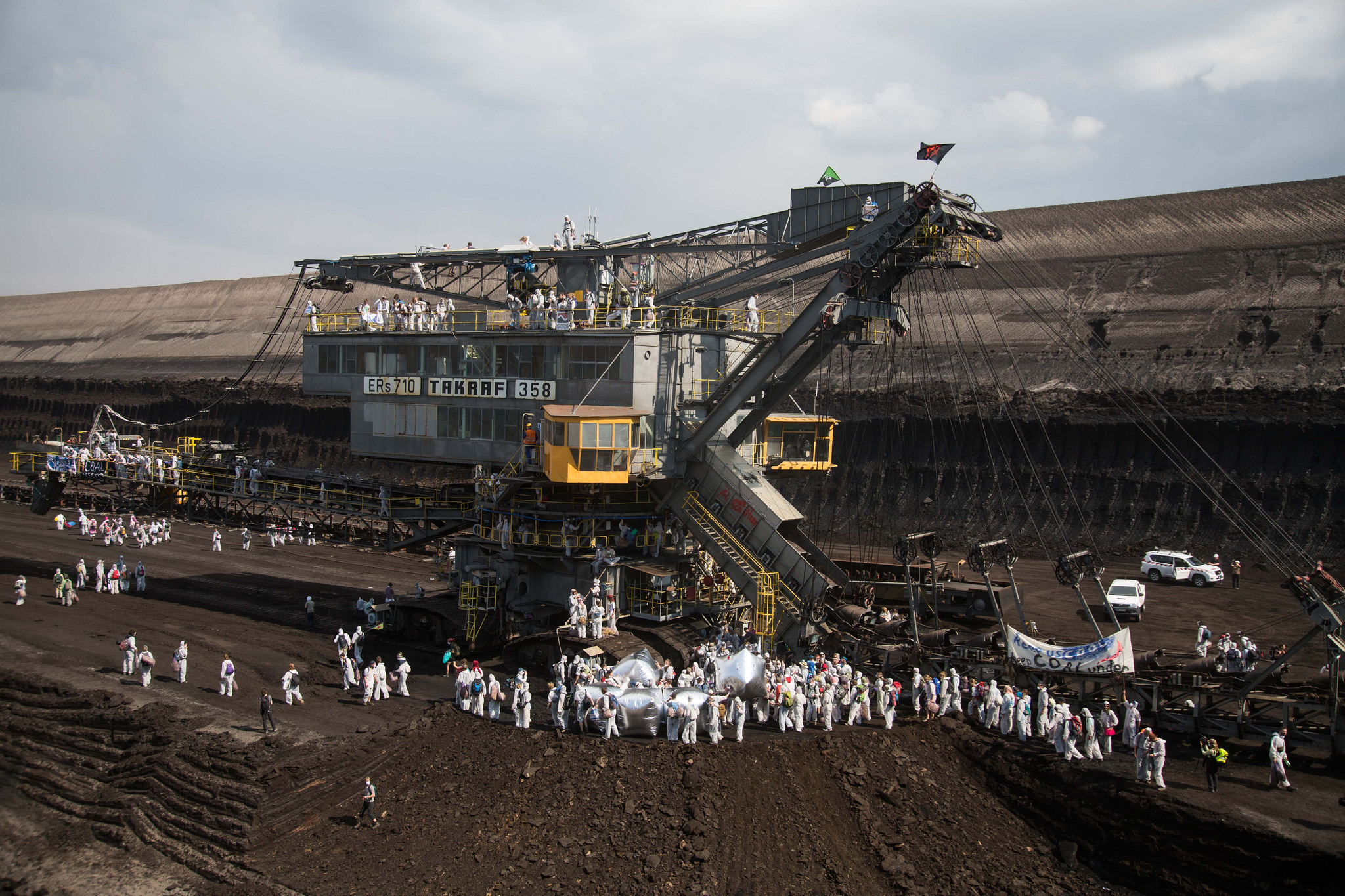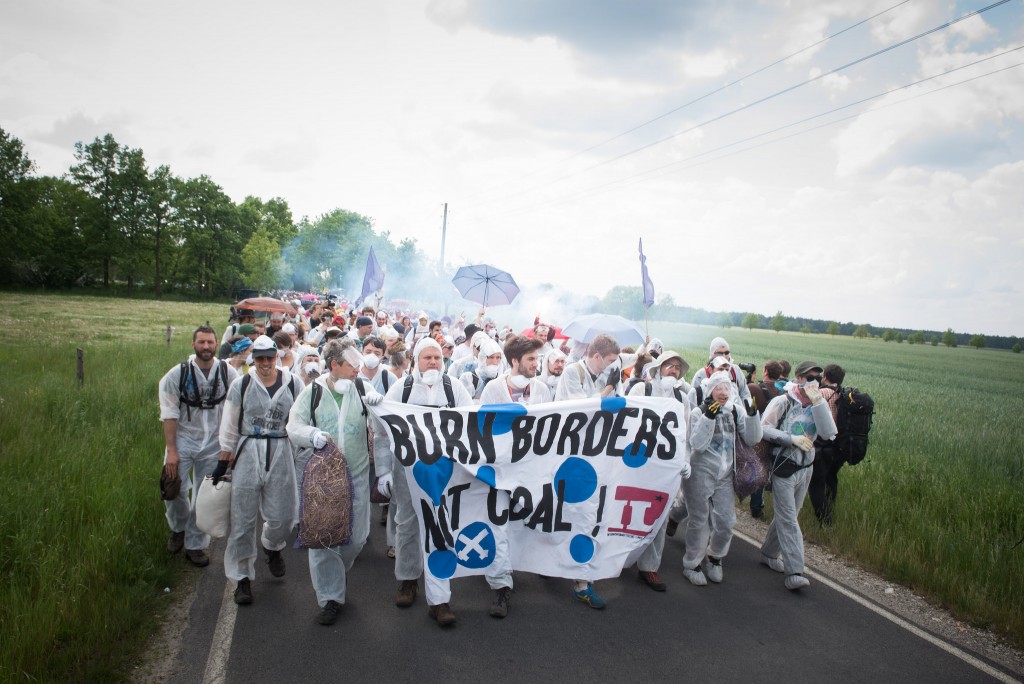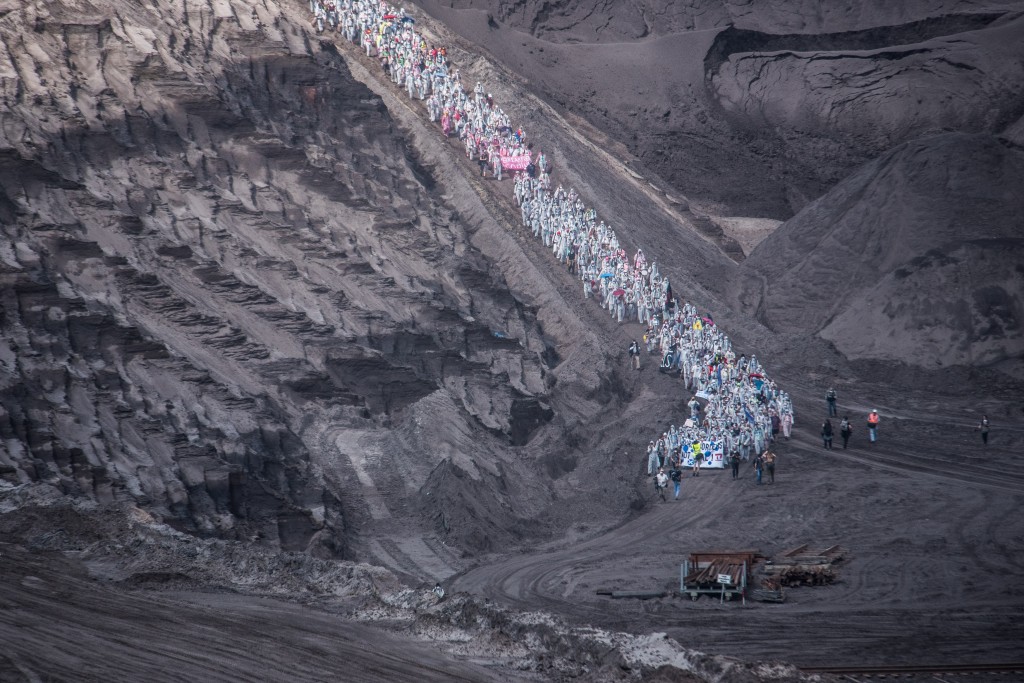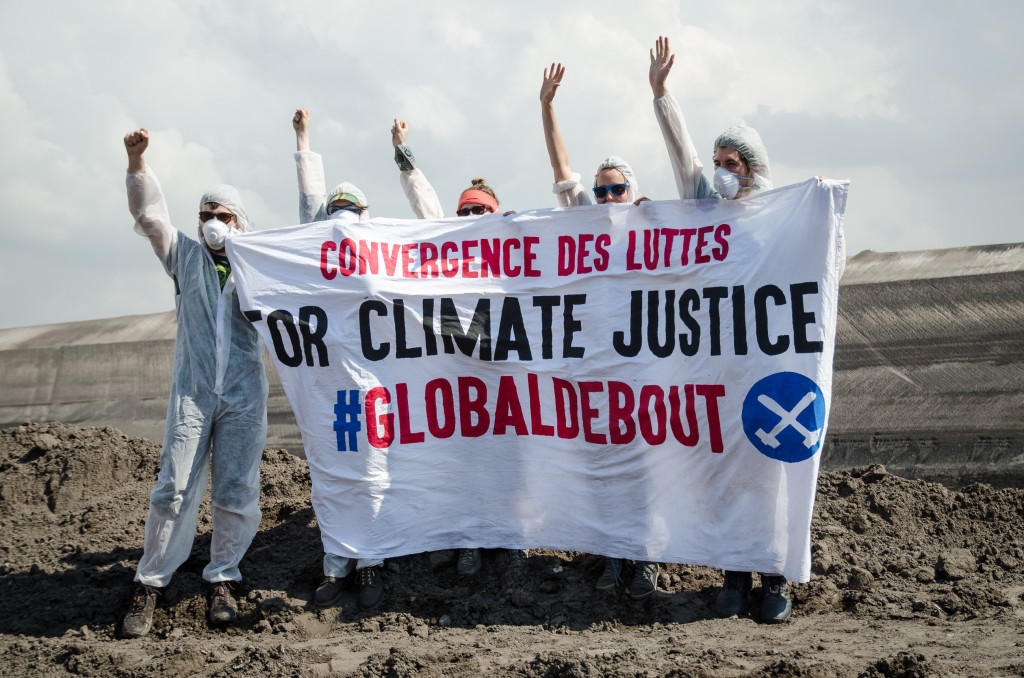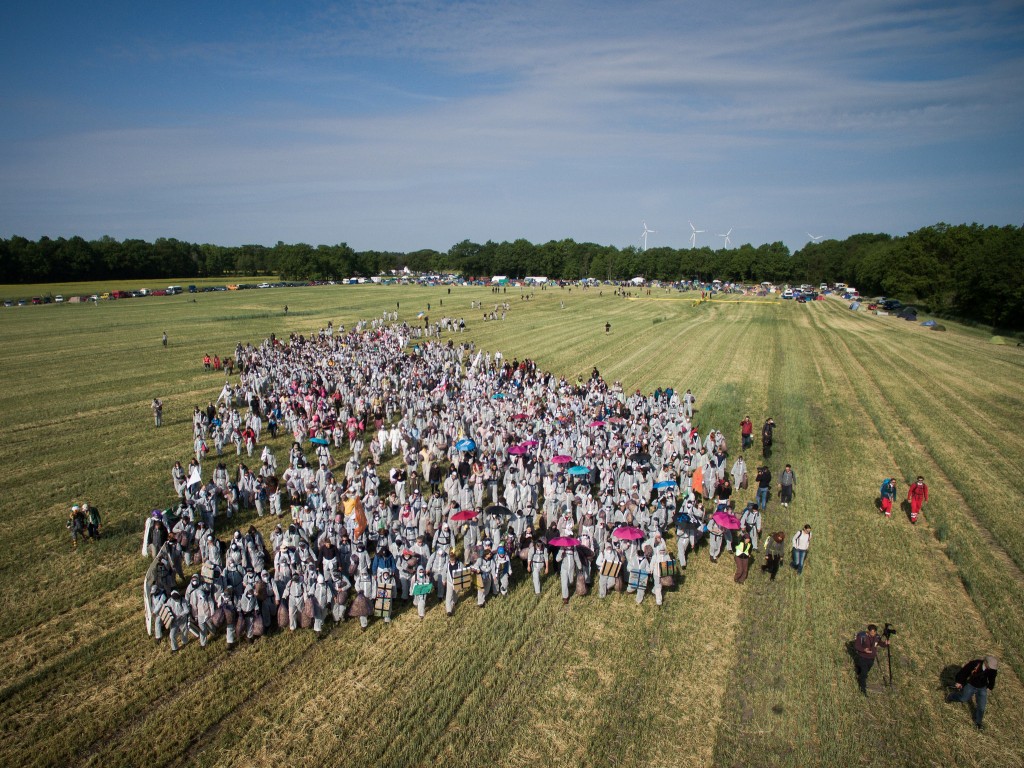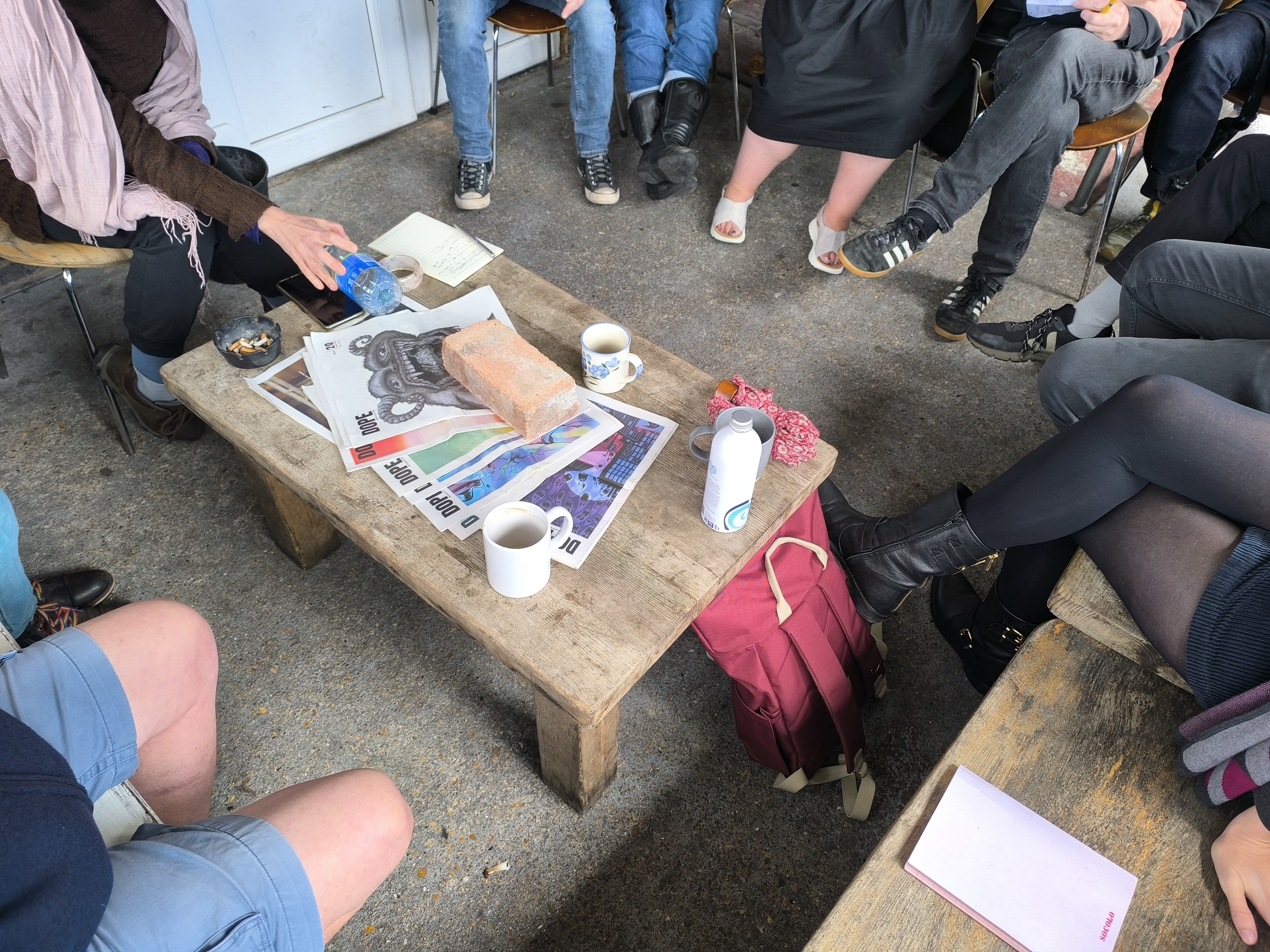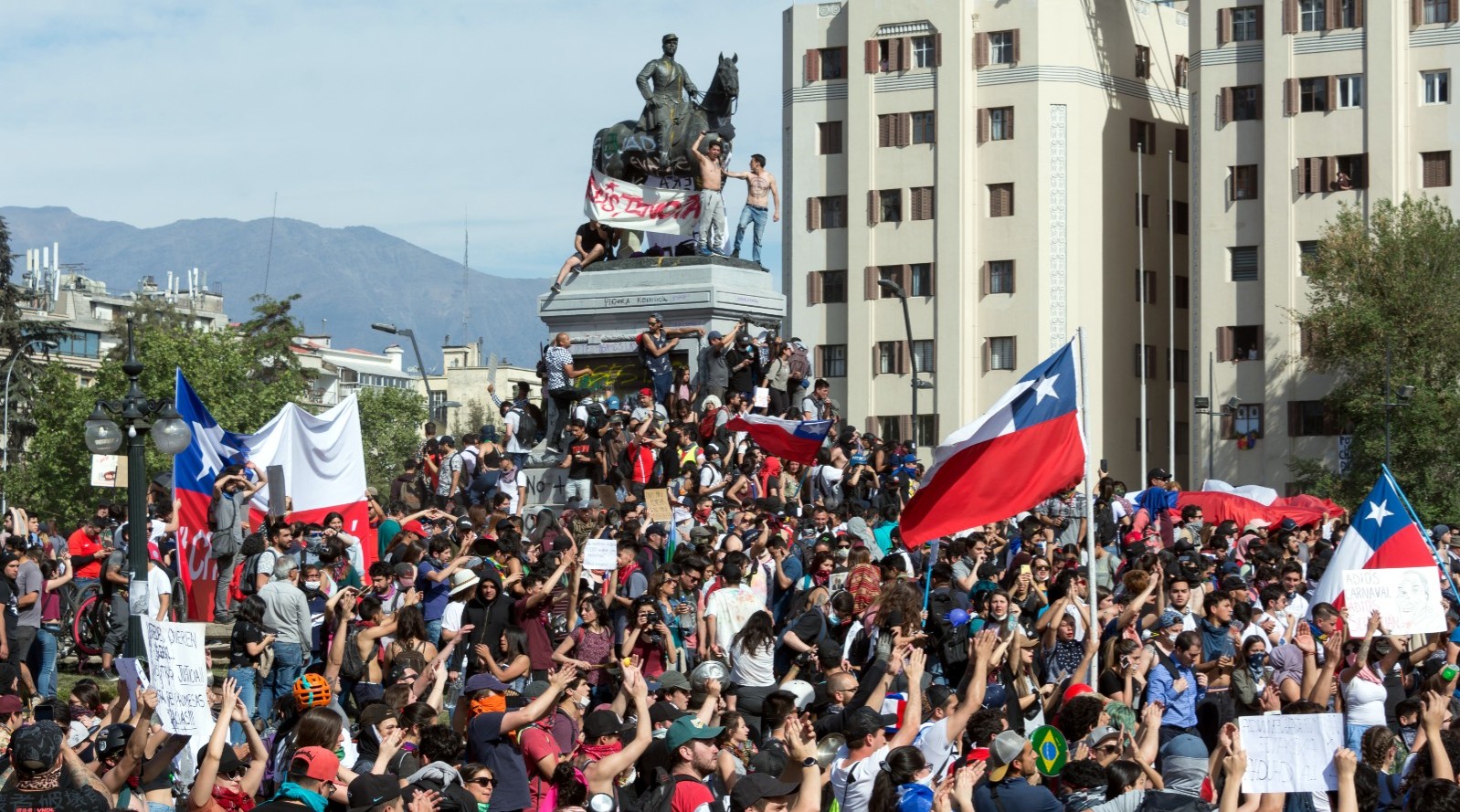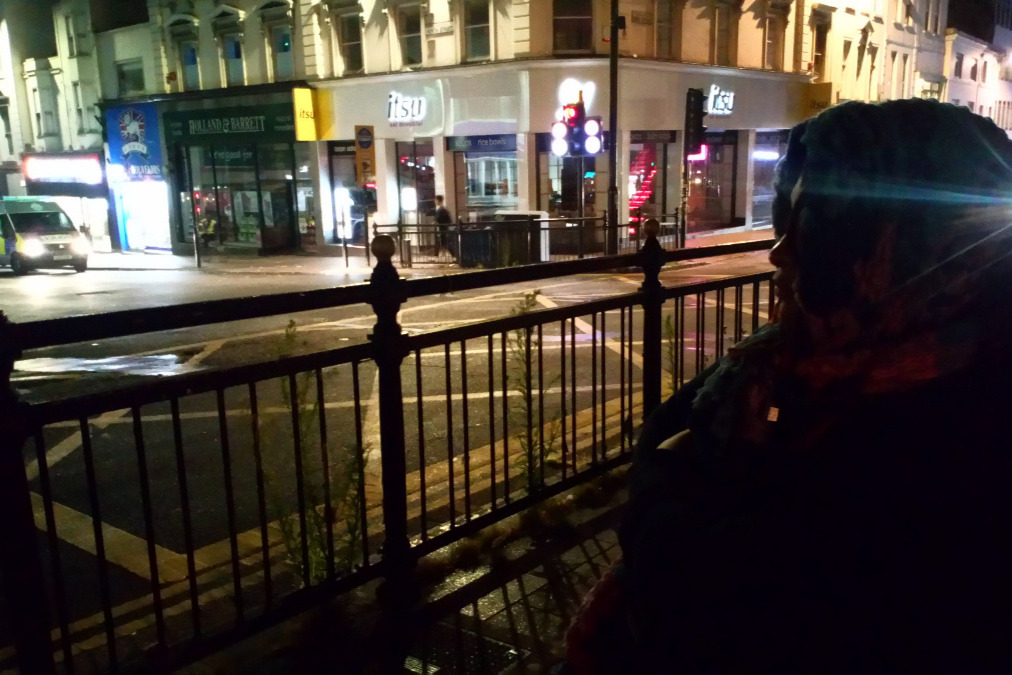No Love for a Nation, No Coal for the Power Station
A short report from members of Plan C who took part in the Ende Gelände (#endegelaende) mass action to stop coal production and burning in Germany.
Ende Gelände is a grass roots campaign organisation with the aim of shutting down and stopping coal extraction. Last year it took place in the Rhineland coal region, and this year in the Lausatia coal fields in Brandenburg, south of Berlin. The strategy of civil disobedience took place over three days in direct actions comprising over 3500 people from across Europe, stopping diggers and blocking coal supply lines on the railways to the nearby Schwärze Pumpe ‘Black Pump’ power station. People also made it into the power station itself, the combined result of the actions being a complete stop to coal extraction and supply to the power station forcing it to run at 20% capacity. At the camp now there are still some actions ongoing and, unfortunately, attacks from local right wing groups and fascists on actions still taking place and the deconstruction of the camp. This year’s actions represented an unprecedented level of resistance to coal extraction in Germany – both in numbers of people involved and impact – this being the first time supply lines to a German power station have been severed in this way. The Schwärze Pumpe is the 10th biggest carbon emitter in Europe, and is operated by the Swedish state-owned energy company Vattenfall. Plan C members were involved in blocking diggers in the mine and going to the power station.
System Change Not Climate Change
Why is coal important in Germany? Germany’s transition towards renewable energy is in no way complete, in spite of an impressive energy transition (Energiewende) led by community energy organisations – on one of the days of action, 100% of Germany’s electricity demand was met by renewable energy. A community buy-out of Berlin’s grid (Berliner Energietisch) was made around two years ago, but unfortunately the turn-out was too low in the referendum that would’ve agreed this, despite 80% of those who did vote agreeing. This happened in a context where, following the nuclear disaster in Fukushima, in 2011 the government were forced to close the existing nuclear power stations by 2022, whilst stopping plans for new nuclear. One contentious issue has been that, as the grid does not have the characteristics required for a fully renewable electricity supply at the moment (although this is of course possible), there has been a significant push to increase coal production and use in the electricity supply. Brown coal, such as lignite, is one of the worst forms of coal that can be produced. In Germany, coal is still the main fuel for electricity and is obviously very carbon intensive, as well as having major impacts on agriculture and health.
The action: Our group entered the pit on the Friday night with minimal police presence and slept on the coal digger overnight and left the pit in time to join a pre-organised, ‘legal’ demonstration. The use of the legalised protest point to support and strengthen the actions in the coal mine, was incredibly successful. The demonstration included local groups involved in long term campaigns against the mine and also liberal NGOs and green groups; but the way in which Ende Gelände organisers co-ordinated with the demonstration was such that we were able to join it peacefully, giving us safety in numbers when exiting the mine. Secondly, it made a strong point of political unity between the national and international mine blockers, and local campaigners who didn’t feel able to participate directly in the action. Members of parliament and others involved with NGOs, formed part of this legal demonstration, and created a spectacle that made arrests more difficult for the state; this kind of solidarity from those not taking direct action with those taking action is a tactic that our movements in the UK should be looking towards from local communities, organisations and politicians.
Pre-figurative politics – a declaration of intent
The actions took place along the length of the supply chain, giving a clear signal of what needs to happen to change energy production. One of the most powerful aspects of the action was the openness with which it was undertaken – it was publicly announced that the goal of the protest was to stop coal extraction. The legality of the situation was diffused in a language that pointed to the needs and intentions of the actors as being relevant, necessary and common sense, rather than using a discourse of heroism and sacrifice. They also carefully explained the boundaries of the agreement and the extent to which the action support structures were able to deal with the actions (see the note on action consensus below). Reclaim the Power’s recent action in Merthyr Tydfil, south Wales, also part of the global Break Free 2016 wave of actions, adopted the use of an action consensus, pointing towards the beginning of a change in how direct actions are organised in the UK. Away with secretive suprise direct actions using small groups, towards participatory actions in which masses of people can get directly involved, whilst knowing what is going to happen.
This year’s action used an adaptive strategy – it wasn’t just one big mass action, but consisted of different fingers acting at different times in dynamic waves. This led to a greater impact stopping Vattenfall’s extraction and for a longer period of time. It would not have been as powerful if everyone had left the camp in one wave and targeted one location; huge numbers made it possible to have an increased effect whilst reducing risk to the people involved. It was still focussed on one company’s operations in one area, relying on the structure of one camp. The ‘End Coal’ action in Wales was one mass trespass on one coal mine, very different from previous years of Reclaim the Power camps/actions. Previously, smaller affinity groups to target different parts of a company’s operations e.g. actions at Cuadrilla’s PR company’s office, sites and headquarters. This year in both RtP and Ende Gelände, people aimed to return to the camp and were united in the similarity of their activities and goals, and they shared stories and experiences of their days – maybe helped by the locality of actions.
It is clear though that there is much practice and underlying politics which were crucial to the possibility of such a successful action camp happening from which we can take lessons in the U.K. One of the most stand-out features was the strength of the delegate structure employed in the fingers (large groups of around 500 or more) taking part in the actions, but also on the camp, and active in the run up to the start of the camp. Much of this stems from political discussions had inside decades of the autonomous movement in Germany and hasn’t just sprung up out of the neccesity of action that climate change is forcing. These are conversations of prefigurative politics, action agreements, delegate structures and political demands and goals – ones which need to be had beyond the climate movement and in the broader left.
Notes
The notion of an Action Agreement/Consensus argues that we should collectively determine political actions before a mass action to prefiguratively shape the direction of actions so they are in line with the political goals of people and organisations. Partly so the actions can be stronger, and partly to minimise risk created by the individualistic “everyone can do whatever they want” theory of the breakaway blocks. We should be able to make a decision beforehand in a block about what people are doing so that individuals can be secure in the knowledge of roughly what will happen so they can be prepared – i.e. there will be kids so no storming this building or smashing that shop or whatever.
An Action Agreement is important and should be made public in advance, this way people not in the organisation or involved in the planning know what the block expects and is democratically bound by. Blockupy 2015 in Frankfurt is a good example of this, the original Action Agreement [http://blockupy.org/en/18m/blockades/] was not held to by all participants in the event, but the fact this was put out allowed for self critical public evaluation on the basis of the original intentions of organisations involved [http://blockupy.org/en/6088/blockupy-disobedience-alliance-street/]. There is a certain strength in publicly announcing disobedient actions, not only does it allow others to decide beforehand if they’d like to be involved, but it puts forwards a bold challenge to the state in writing, and challenges the norm of either having fluffy marches or very secretive and exclusive pre-planned actions that can be scuppered by undercovers. This, if carried through, speaks clearer and in a more determined and open way.
The process of developing an Action Agreement is one which would necessitate democratic decision making and discussion from within the organisation responsible for an action well in advance, and also afterwards. This would be important in teasing out the reasoning behind the intervention in the first place. Developing the process for formative decision making should be seen as an integral part of developing a robust action politics in the U.K.

